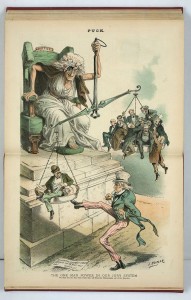Matthew R. Arnold of Arnold & Smith, PLLC answers the question “I was involved in a motor vehicle accident with injuries. Do I need a lawyer?”
By their nature, lawsuits are expensive, time-consuming and difficult. That means that when attorneys consider taking personal-injury cases on a contingency basis, they must choose their cases wisely, or choose only those cases on which they feel they are likely to receive an adequate return on their investment of time, energy and resources.
 Many attorneys, legal scholars and legislators have fought for decades for the establishment of some kind of modified, no-fault tort system for smaller personal-injury cases. They argue that the traditional tort system imposes high-transaction costs, delays compensation to injured claimants for months and years at a time, serves to clog up already-crowded court dockets, and delivers “unpredictable, lottery-like awards” to claimants—awards made by jurors who have little contact with the legal system and who have little means or knowledge sufficient to render decisions on liability or on the amount of compensation appropriate in a given case.
Many attorneys, legal scholars and legislators have fought for decades for the establishment of some kind of modified, no-fault tort system for smaller personal-injury cases. They argue that the traditional tort system imposes high-transaction costs, delays compensation to injured claimants for months and years at a time, serves to clog up already-crowded court dockets, and delivers “unpredictable, lottery-like awards” to claimants—awards made by jurors who have little contact with the legal system and who have little means or knowledge sufficient to render decisions on liability or on the amount of compensation appropriate in a given case.
Furthermore, critics of the traditional tort model argue, the high-cost, fact-intensive “fault” tort system leaves out many injured claimants—notably those with small claims. In simple terms, it simply is not worth it for a personal-injury attorney operating in the traditional tort litigation model to take on small cases.
That was not always the case. Bakersfield, California attorney Dennis Beaver wrote recently in the Hanford Sentinel that settlement amounts in car-accident cases made millionaires out of thousands of attorneys, claimants, doctors and chiropractors in the 1980s and 1990s. In years past, a claims supervisor at a major California insurance company told Beaver, plaintiffs in accident cases “could expect the average claim to settle for at least three times the medical bills in addition to lost wages, regardless of how severe the impact was.” In California, however, settlement values returned to Earth years ago.
These days, adjusters closely examine claims to see whether the impact and damage to a claimant’s vehicle justified the injuries and treatment. If the claim is accepted, adjusters will seek to limit the nature and duration of treatment, leaving claimants to pay medical bills on their own in some instances. Even in cases in which property damage was significant, adjusters usually only have the authority to settle a claim for one-and-a-half to two times the amount of bills for related medical treatment.
The slim margins in small injury cases means, in practical terms, that it may be “difficult to find a good attorney to take your case,” the claims supervisor told Beaver. That leaves claimants either to handle claims on their own or to turn to a so-called “settlement mill.” A Fresno, California-based attorney told Beaver that claimants need to beware of “‘personal injury mills’ who advertise heavily on television and will take anything, looking for a quick settlement that is in their interest, not yours.”
Personal-injury or settlement mills have established, in essence, a niche market for low-value personal-injury claims. While the mills have the benefit of serving clients who may otherwise go without representation, many traditional tort lawyers criticize their practices, contending that they provide subpar representation and damage the reputation of lawyers.
If you or someone you know has any questions regarding potential personal injury claims, feel free to contact the experienced personal injury attorneys at Arnold & Smith, PLLC in Charlotte, North Carolina for a free consultation. Call toll free at (955) 370-2828 or click here for additional resources.
Part 3:
Settlement Mills III: Goal of settlement mills is to settle quickly, often for low value
About the Author
 Matthew Arnold is a Managing Member of Arnold & Smith, PLLC, where he focuses on the areas of family law, divorce, child custody, child support, alimony and equitable distribution.
Matthew Arnold is a Managing Member of Arnold & Smith, PLLC, where he focuses on the areas of family law, divorce, child custody, child support, alimony and equitable distribution.
Mr. Arnold was raised in Charlotte, where he graduated from Providence Senior High School. He attended Belmont Abbey College, where he graduated cum laude, before attending law school at the University of North Carolina at Chapel Hill on a full academic scholarship.
A board-certified specialist in the practice of Family Law, Mr. Arnold is admitted to practice in all state courts in North Carolina, in the United States Federal Court for the Western District of North Carolina, in the North Carolina Court of Appeals and Supreme Court, and in the Fourth Circuit United States Court of Appeals in Richmond, Virginia.
In his free time, Mr. Arnold enjoys golfing and spending time with his wife and three children.
Sources:
http://www.charlestonlaw.net/personal-injury-lawyer-charleston/
Image Credit:
“The one man power in our jury system LCCN2011661381” by Joseph Keppler – Library of CongressCatalog: http://lccn.loc.gov/2011661381Image download: http://lcweb2.loc.gov/service/pnp/ppmsca/28100/28169v.jpgOriginal url: http://hdl.loc.gov/loc.pnp/ppmsca.28169. Licensed under Public Domain via Wikimedia Commons – http://commons.wikimedia.org/wiki/File:The_one_man_power_in_our_jury_system_LCCN2011661381.jpg#/media/File:The_one_man_power_in_our_jury_system_LCCN2011661381.jpg
See Our Related Video from our YouTube channel:
https://www.youtube.com/user/ArnoldSmithPLLC/videos
See Our Related Blog Posts:
 Charlotte Injury Lawyers Blog
Charlotte Injury Lawyers Blog


 How can we help you?
How can we help you?